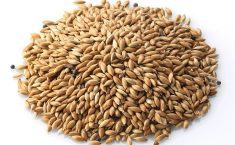A week-long strike by dockworkers at the Port of Montreal is expected to conclude after federal back-to-work legislation passed Parliament Friday evening.
Bill C-29, introduced Tuesday in the House of Commons, cleared third reading in the Commons Wednesday and received three readings in the Senate and royal assent Friday.
The port’s longshore workers, represented by the Syndicat des debardeurs du port de Montreal (CUPE Local 375), undertook a part-time strike starting April 13, and expanded that to a full-time stoppage effective April 26.
The workers’ previous collective agreement expired at the end of December 2018; the union has described the main sticking point in talks as worker scheduling as it relates to “work/life balance.”
Read Also

Senft to step down as CEO of Seeds Canada
Barry Senft, the founding CEO of the five-year-old Seeds Canada organization is stepping down as of January 2026.
A strike doesn’t affect bulk grain traffic, which is protected under the federal Labour Code, it does affect export movement of containerized crops, such as pulses and special crops, as well as imports of goods such as fertilizer.
Federal Labour Minister Filomena Tassi, in introducing C-29 on Tuesday, billed it as the government’s “least desired course of action.”
The bill, she said at the time, would also set up a “neutral mediation-arbitration process to resolve the issues in dispute between the parties and conclude a new collective agreement,” she said, emphasizing the government “is not taking sides.”
Tassi had also said C-29 does not prevent the union and Maritime Employers Association (MEA), which represents port terminal companies, from “concluding an agreement on their own terms at any point in this process.”
Pulse Canada, which among other crops sector groups had pressed Ottawa to ward off a work stoppage, said Friday the pulse industry “welcomes the end of the strike” at the port and thanked MPs and senators who voted for C-29’s passage.
However, Pulse Canada president Greg Cherewyk said the group “encourages both parties to reach a permanent agreement as quickly as possible in order to provide certainty to containerized shipping in Canada.”
Cherewyk described the port work stoppage as “the latest example of the vulnerability of Canada’s supply chains” and said Pulse Canada seeks “a national conversation on supply chain resiliency” including shippers, government and other stakeholders.
CUPE on Friday ripped C-29 as “unconstitutional, as it infringes fundamental rights protected by the Charter” and said it would challenge the bill in court.
In a release, the union said the MEA “walked away from the bargaining table April 27, once it was clear the Trudeau government would give them their wish of legislating their employees back to work.”
CUPE national president Mark Hancock said Prime Minister Justin Trudeau “just sent a loud and clear message to every employer in the country: don’t bother bargaining in good faith with your workers, because if things get tough, we’ll be there to bail you out.”
CUPE national secretary-treasurer Charles Fleury, in the same release, credited the federal New Democrats and party leader Jagmeet Singh “for successfully amending this bill to take away some of its worst elements.”
The NDP, in a separate release Thursday, said Trudeau and Tassi “are going to dispose of an inconvenient labour dispute and undermine fundamental Canadian labour rights along the way.” –– Glacier FarmMedia Network
















